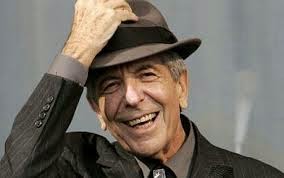This being December 3rd, it is the Feast Day in the Roman Catholic Church of a most unusual man, who devoted his 46 years to loving God, and by orders of his religion, set about trying to convert all he could to that same devotion.
Francis Xavier was born in 1506 in the Spanish kingdom of Navarre, had a fierce outlook, very proud, passionate and quick to anger. Yet this was offset by his tremendous heart full of generosity and feeling for others. As he grew he sought out study, and in fact was a disciple of the heroic St. Ignatius Loyola. They met at the University of Paris, where Francis went at 19. Ignatius was much older and tried hard to win over the younger Francis to the ways of living totally for God. Eventually, Francis was converted to what we know as the Exercises of Ignatius, and both men joined the Society of Jesus where they studied for three years. They were ordained as priests in 1537.
Francis Xavier was not a tolerant man. Though he loved God, he considered any who practiced a different form of worship to be pagan, even demonic, and sought to convert them. He was not a learned man, could not speak well, but felt a great passion for God and made energetic attempts to convert all he could to see that the way of Rome was the only path to God. Many were forming new ideas at the time of the renaissance, but Francis could not bring himself to expand his thoughts. This made Francis a man of outdated ideas who refused to broaden his beliefs. The great irony is that this generous man, so caring and concerned, seemed bent on abandoning those who would not see the way as he did. Though he loved God passionately, his thoughts were considered medieval and because of his intolerance for the myriad of ways to love God, is said to have lost many a potential convert to Rome.
Francis Xavier felt he was destined to go on pilgrimage to Jerusalem, but power took him elsewhere. He was ordered by King John of Portugal, who sent many priests to foreign lands to convert them, to India, where he was to set up missions to teach the natives, or "pagans" as Francis called them. He obeyed.
Although possessed of a degree from the University, Francis had no great learning, and took with him only his breviary and a book of meditations. It is interesting to note that he had no knowledge of the religion practiced by the people he was about to teach the gospels. To him, these people were "enemies of God", to be saved at any cost. His fierce attitude never changed, and the devout Muslim, learned Brahmin and holy Buddhist all made no impression on him whatever. With a heart so large, he could not open it to any idea of God but that of Rome, the Papal deity. His goodness held a fierce irony to it.
Another irony was that this good man accepted the slavery and Inquisition of his day without question. He never doubted the right of the Portuguese power in India and was prepared to make use of it in the interests of the gospel.
Slowly, he began to detach himself from things of the world. Francis chose to deliberately live in poverty, refusing to accept even the smallest of charity. That he found enough food to survive is a miracle in itself. When his missionary journeys took him to tropical, hot deserts, he would wear only boots to protect his feet, giving no concession to clothing. What was amazing was his endurance, his tolerance for the most appalling of conditions of both heat and cold, yet no tolerance for the religious practices of other cultures. This is a great complexity of spirit and drive. By day he would seek out those in need, the sick and poor, ministering to them, and at night he would remain in a state of prayer. He practiced all this in an elevated state of joy, very much like the other Saint Francis, of Assisi, Italy.
His journey on the sea and then land was an epic adventure, yet he sought out the most miserable of conditions for himself. In 1542 he arrived in the south of India where he ministered to the poor, the sick and homeless, and did this incessantly. Working among the pearl-fishers and natives for about 7 years he then made his way east.
He died alone trying to enter China, on December 3, 1552, on a small island near Japan. In 10 years, this most poorest of the poor traversed the greater part of the Far East, a remarkable achievement for even the most well-prepared traveler. It is easy to imagine his comfort and solace: a love of God so deep and fierce nothing else held meaning. Did he feel his continual hunger, the extremes of heat and cold? Would it have mattered if he did?
In 1619 Pope Paul V beatified him, and then in 1622 he was canonized a Saint by Pope Gregory XV. On that same date, another holy man was canonized a saint: Ignatius Loyola.
St. Francis Xavier is the patron of all Catholic missions of the Church. He held intensely strong to his beliefs which could've but did not kill him, and many miracles are attributed to him by the Church.
==============================
Basics courtesy of Christian Hagiography, Kate O'Brien, CIN















































12 comments:
Not being Catholic, I knew very little in deed about him. Sound like he stood His ground for his church and the gospel. He kept his message and his heart pure in that regard. - Barbara
huh.
i am Roman Catholic and quite a few of the Saints are special to me, these are two saints whom i knew of but did not have a large knoweldge of. Thank you for finding this information, I think you are trying to tell us, in one hand they tried their best to practise the teachings of our Lord but on the other hand went along with things which today would not be acceptable and even then were not, which brings out the irony. Dont know if I am correct but that is my impression.
Thanks for telling the story of Francis Xavier, Cathy. Contradictory is probably the most charitable way of describing his legacy.
I was baptized in a St Francis Xavier church... thank you for all of this info... you rock!
be well,
Dawn
http://journals.aol.com/princesssaurora/CarpeDiem/
What a dedicated man! If we were all that dedicated to the things that we do, we would be very successful people! I have never heard of him, so thank you for sharing! -Missy
You picked a very notable person there Cathy as he was a man of unavoidable love of his God and the moral upkeep of the Church. He was a Jesuit in the most formal, austere, stern and a true disciplinarian and guardian of the Church’s moral teaching. Yet for all you said, his words are still quoted to this day on dogma and the true way.
He was the original man on a mission, out to convert those pagans at all costs, and for that, paying dearly with his own life. I really wonder what he would have made of the world of today when he couldn't tolerate the liberalism of the renaissance; makes one truly think that he would still be the man apart.
Gives adage to the saying “Many are called but Few are chosen” Thanks for those memories. ED
As a child, our neighbor, Mr. Sheehy, whose given name was: Francis Xavier, was pretty much like St. Francis Xavier. Fierce in his beliefs and totally unable to open his heart and mind to other 'ways'. Amazing.
This was interesting to read. Thanks for sharing it.
Pam
Jesus Christ was 33 yrs old when he died? Where did you see 46?
Is physcfun reading the same blog we are? You're not talking about Jesus.
Gaz xxx
Well Gaz, that's why I have a sneaky feeling people don't read the entry, just the highlights lol.
Post a Comment